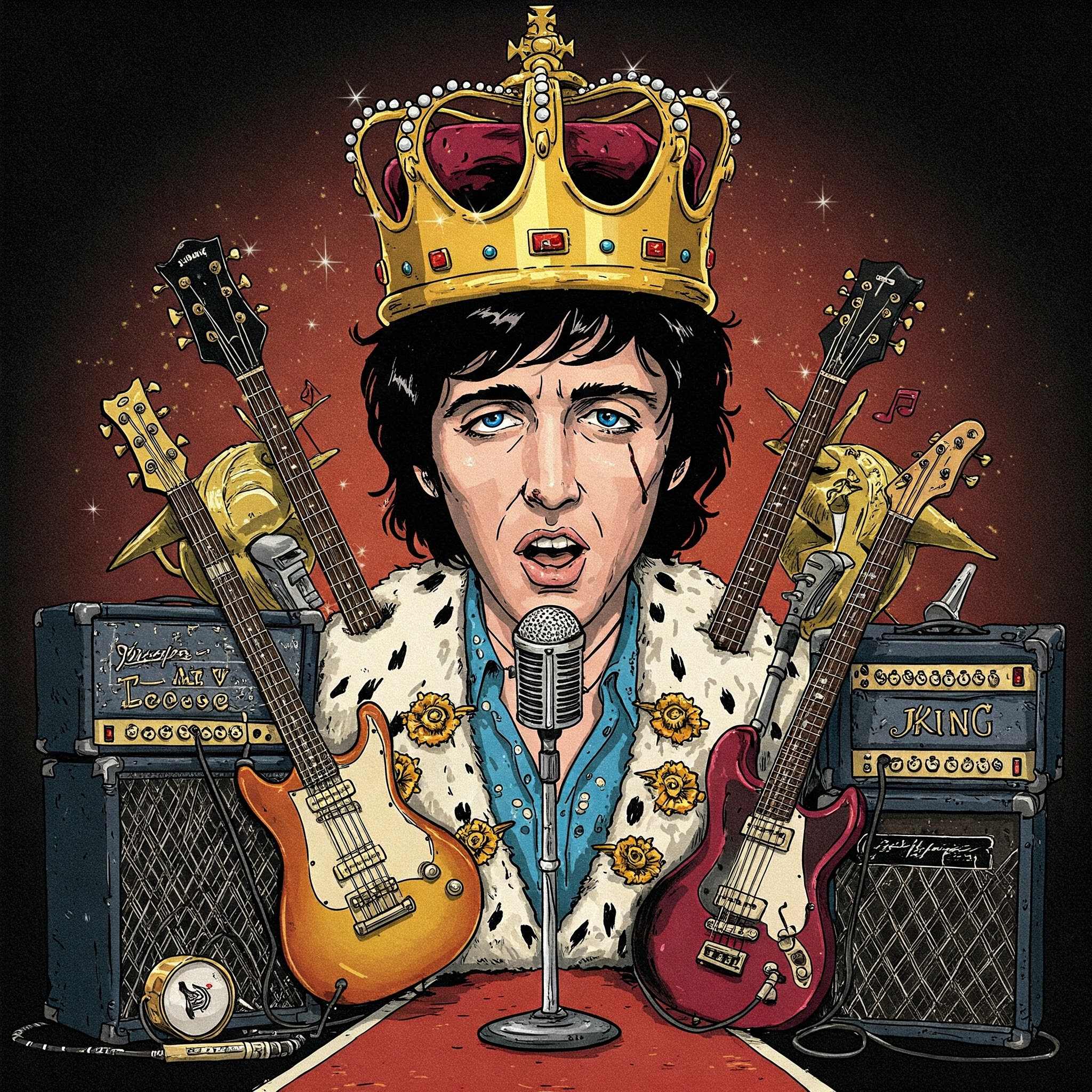King
Definition
King is a noun and a verb. As a noun, it refers to a male monarch who rules a kingdom, a person or thing considered to be the best or most important in a particular field, or the most powerful chess piece. As a verb, it means to act as a king or to crown someone as a king.
Parts of Speech
- Noun
- Verb
Pronunciation
American English
- IPA Pronunciation: /kɪŋ/
- Respelling: king
British English
- IPA Pronunciation: /kɪŋ/
- Respelling: king
Etymology
The word "king" originates from Old English "cyning," which derives from Proto-Germanic "*kuningaz," meaning "leader" or "ruler." It is related to the Old Norse "konungr" and the German "König." The term has been used historically to denote a sovereign leader of a nation or territory.
Derivatives
- Kingdom (noun)
- Kingly (adjective)
- Kingship (noun)
- Kingmaker (noun)
- Reking (verb, rare)
Synonyms
- Monarch
- Sovereign
- Ruler
Antonyms
- Commoner
- Peasant
- None
Usage
The term "king" is widely used in historical, cultural, and metaphorical contexts. For example, "The king ruled with fairness," or "He is the king of pop music."
Related Terms
- Queen: The female counterpart of a king.
- Throne: A symbol of the king's authority.
- Empire: A large territory ruled by a sovereign leader.
Detailed Definitions
Noun
- A male monarch who rules a kingdom: Refers to a sovereign ruler.
- Example: "The king addressed his subjects during the ceremony."
- A person or thing considered the best in a particular field: Describes a dominant or superior entity.
- Example: "He is known as the king of rock and roll."
- The most powerful chess piece: Refers to the piece that must be protected to avoid checkmate.
- Example: "The player moved the king into a defensive position."
Verb
- To act as a king: Refers to performing the duties of a monarch.
- Example: "He kinged over the court with grace."
- To crown someone as a king: Indicates the act of bestowing kingship.
- Example: "The nobles kinged him after the victory."
king



🇨🇳 Mandarin
- "国王" (Guówáng) - King (monarch)
- IPA Pronunciation: /kuɔ˨˩˦ wɑŋ˥˥/
- English Respell: guo-wang
- "王" (Wáng) - King (in a game, like chess)
- IPA Pronunciation: /wɑŋ˥˥/
- English Respell: wang
🇮🇳 Hindi
- "राजा" (Rājā) - King (monarch)
- IPA Pronunciation: /ɾaːdʒaː/
- English Respell: ra-ja
- "बादशाह" (Bādshāh) - King (informal or in a game)
- IPA Pronunciation: /baːdʃaːɦ/
- English Respell: baad-shaah
🇪🇸 Spanish
- "Rey" - King (monarch)
- IPA Pronunciation: /rei̯/
- English Respell: rei
- "Reina" - King (in card games)
- IPA Pronunciation: /ˈreina/
- English Respell: rei-na
🇫🇷 French
- "Roi" - King (monarch)
- IPA Pronunciation: /ʁwa/
- English Respell: rwa
- "Roi" - King (in card games, chess)
- IPA Pronunciation: /ʁwa/
- English Respell: rwa
🇸🇦 Modern Standard Arabic
- "ملك" (Malik) - King (monarch)
- IPA Pronunciation: /malik/
- English Respell: ma-lik
- "ملك" (Malik) - King (in chess)
- IPA Pronunciation: /malik/
- English Respell: ma-lik
🇧🇩 Bengali
- "রাজা" (Rājā) - King (monarch)
- IPA Pronunciation: /ɾaːdʑaː/
- English Respell: ra-ja
- "রাজা" (Rājā) - King (in chess)
- IPA Pronunciation: /ɾaːdʑaː/
- English Respell: ra-ja
🇷🇺 Russian
- "Король" (Korol') - King (monarch)
- IPA Pronunciation: /kɐˈrolʲ/
- English Respell: ko-rol
- "Король" (Korol') - King (in chess)
- IPA Pronunciation: /kɐˈrolʲ/
- English Respell: ko-rol
🇵🇹 Portuguese
- "Rei" - King (monarch)
- IPA Pronunciation: /ʁej/
- English Respell: rei
- "Rei" - King (in card games)
- IPA Pronunciation: /ʁej/
- English Respell: rei
🇮🇩 Indonesian
- "Raja" - King (monarch)
- IPA Pronunciation: /ɾadʒa/
- English Respell: ra-ja
- "Raja" - King (in chess)
- IPA Pronunciation: /ɾadʒa/
- English Respell: ra-ja
🇩🇪 German
- "König" - King (monarch)
- IPA Pronunciation: /ˈkøːnɪç/
- English Respell: koen-ich
- "König" - King (in card games)
- IPA Pronunciation: /ˈkøːnɪç/
- English Respell: koen-ich
🇯🇵 Japanese
- "王" (Ō) - King (monarch)
- IPA Pronunciation: /oː/
- English Respell: oo
- "キング" (Kingu) - King (in card games)
- IPA Pronunciation: /kiŋɡɯᵝ/
- English Respell: king-gu
🇻🇳 Vietnamese
- "Vua" - King (monarch)
- IPA Pronunciation: /vuə˧/
- English Respell: vua
- "Vua" - King (in card games, chess)
- IPA Pronunciation: /vuə˧/
- English Respell: vua
🇰🇷 Korean
- "왕" (Wang) - King (monarch)
- IPA Pronunciation: /waŋ/
- English Respell: wang
- "왕" (Wang) - King (in card games)
- IPA Pronunciation: /waŋ/
- English Respell: wang
🇹🇷 Turkish
- "Kral" - King (monarch)
- IPA Pronunciation: /kɾaɫ/
- English Respell: kral
- "Kral" - King (in card games)
- IPA Pronunciation: /kɾaɫ/
- English Respell: kral
🇵🇰 Urdu
- "بادشاہ" (Baadshaah) - King (monarch)
- IPA Pronunciation: /bɑːdʃɑːh/
- English Respell: baad-shaah
- "بادشاہ" (Baadshaah) - King (in card games)
- IPA Pronunciation: /bɑːdʃɑːh/
- English Respell: baad-shaah





